Charity. Aspects of the legal framework - terra incognita or tabula rasa?
Recently, we, Ukrainians, celebrated the next, 22nd anniversary of the adoption of the Fundamental Law of Ukraine - the Constitution.
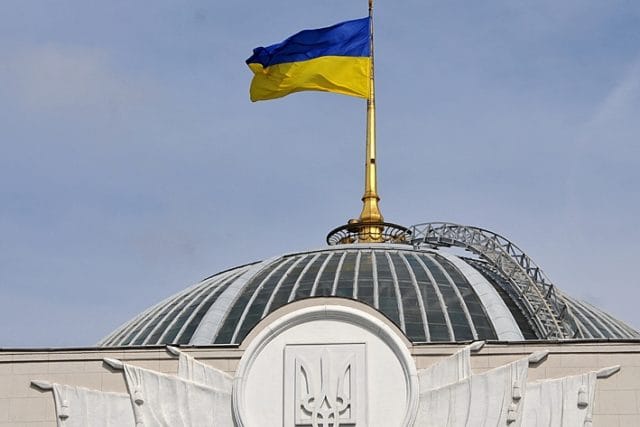 Yes, and "noted" - this is probably not the most appropriate word in today’s realities. Rather, they sarcastically summed up acts of blatant lawlessness in power and civil impotence in an attempt to reach the armored doors of the four-story marble offices of the people’s servants, whom they themselves had chosen. Although, here we still need to see who is closer to the art of making mistakes - we, the people who choose the wrong ones, or the political (non) elite, which responds to knowledge with ignorance, truth - untruth, trust - betrayal.
Yes, and "noted" - this is probably not the most appropriate word in today’s realities. Rather, they sarcastically summed up acts of blatant lawlessness in power and civil impotence in an attempt to reach the armored doors of the four-story marble offices of the people’s servants, whom they themselves had chosen. Although, here we still need to see who is closer to the art of making mistakes - we, the people who choose the wrong ones, or the political (non) elite, which responds to knowledge with ignorance, truth - untruth, trust - betrayal.
Here we recall a textbook example from the story of Louis XIV and experts who attribute the phrase "The state is me!" to this French monarch. In fact, before he died, he told his son: “I am leaving, but the state will always live! We must put the well-being of our subjects far above our own good. ” Louis XIV did not declare his monopoly on power - he spoke of the fullness of his royal duties. This is the case with our Laws and legislators - it seems that they exist, they seem to know about them, but in practice - confusion not only in the verbal wording of the Law, but also in human destinies.
Now, unfortunately, at the national level it is customary to remember the Law and the Law on holidays or at a convenient (favorable) occasion. On public and civil - much more often.
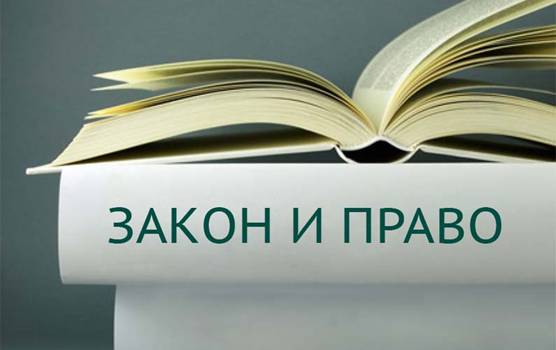 "You will answer according to the Law!", "Yes, I will drag you to court!", "You will tell my lawyer!", "I have every right!", "You have no evidence!", - these phrases and many similar ones, already have long been part of the usual lexicon, and at the same time, in the everyday life of Ukrainian society. They can often be heard on the street, in the store, and in the queue at the clinic (or rather - the Center for Primary Health Care now), and in public transport, and, of course, directly in the institutions where the same laws are created, (un) fair courts are conducted and Ukrainian lawmaking is developed. And the adjective "Ukrainian" here is not because it belongs to the state of Ukraine, but because it has its own specific bureaucratic color, which distinguishes the Law and Law in a separate area of jurisprudence - Ukrainian lawmaking.
"You will answer according to the Law!", "Yes, I will drag you to court!", "You will tell my lawyer!", "I have every right!", "You have no evidence!", - these phrases and many similar ones, already have long been part of the usual lexicon, and at the same time, in the everyday life of Ukrainian society. They can often be heard on the street, in the store, and in the queue at the clinic (or rather - the Center for Primary Health Care now), and in public transport, and, of course, directly in the institutions where the same laws are created, (un) fair courts are conducted and Ukrainian lawmaking is developed. And the adjective "Ukrainian" here is not because it belongs to the state of Ukraine, but because it has its own specific bureaucratic color, which distinguishes the Law and Law in a separate area of jurisprudence - Ukrainian lawmaking.
This is a brief introduction to the fact that if there is a Constitution in Ukraine, it does not mean that it works. The same can be said about the Law on Charity and some nuances of the system of taxation of charitable funds. What’s wrong with them?
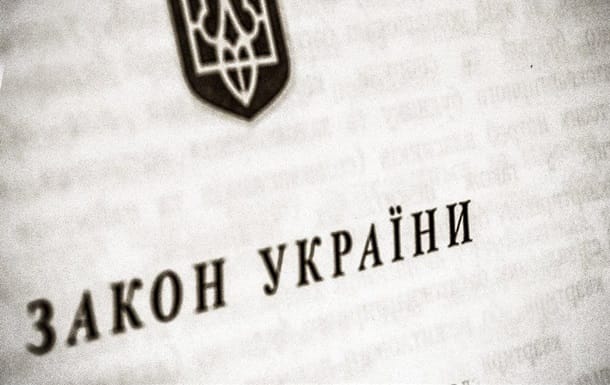 Charity was officially approved at the legislative level in 1997, when the incumbent President of Ukraine Leonid Kuchma signed the Law on Charity and Charitable Organizations on September 16. Leaving aside the complex legal terms, we can say about this Law only that it was written clumsily, very modestly and very conditionally. The interpretation of its main provisions was far from unambiguous and this created a lot of difficulties in the work of philanthropists and their organizations.
Charity was officially approved at the legislative level in 1997, when the incumbent President of Ukraine Leonid Kuchma signed the Law on Charity and Charitable Organizations on September 16. Leaving aside the complex legal terms, we can say about this Law only that it was written clumsily, very modestly and very conditionally. The interpretation of its main provisions was far from unambiguous and this created a lot of difficulties in the work of philanthropists and their organizations.
It was decided to accept the imperfection and revise this Law only after 15 long years. Thus, the new Law of Ukraine "On Charitable Activities and Charitable Organizations" of July 5, 2012 was adopted. It came into force in 2013, but even now has not been able to develop a single mechanism for the direct implementation of this very charitable activity.
What are the pros and cons of the new law?
First, the state registration of charitable organizations has been simplified. Now it is possible to register such an organization not in 2 months, but in 3 working days. But things are not so smooth here due to the fact that the Ministry of Justice and state registrars can not decide which of them should register.
Second, the territorial status of charitable organizations was abolished. This allowed to reach the all-Ukrainian level, and regardless of the place of registration to choose the area of activity and respond more quickly, for example, to natural disasters.
Third, the concept of the direction of charitable activities and its spheres has been expanded. This allowed charitable activities in any industry to run smoothly.
Fourth, there are a number of simplifications: now you do not need to open two separate bank accounts for charity and administrative expenses; accounting has been simplified; obligatory creation of the estimate is canceled. But in addition to the pros at this point, there is a very important disadvantage - the misuse of the results of charitable organizations.
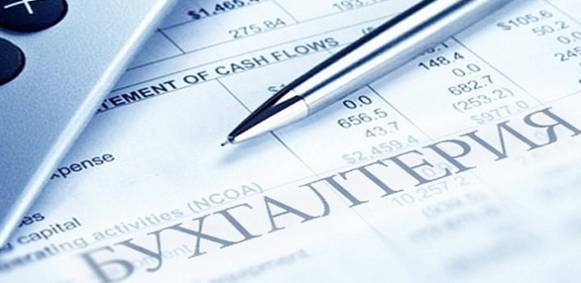 As a result of accounting simplification at the legislative level, it is possible that a charity can freely and painlessly (and most importantly - legally) take a loan from a bank or company on the security of its collected charitable funds. And there is no guarantee that when the loan is repaid, the same bank or company will not require recovery from the same charity. In addition, charities will also be able to lend or lend to others. Which, too, agree, does not honor such a law.
As a result of accounting simplification at the legislative level, it is possible that a charity can freely and painlessly (and most importantly - legally) take a loan from a bank or company on the security of its collected charitable funds. And there is no guarantee that when the loan is repaid, the same bank or company will not require recovery from the same charity. In addition, charities will also be able to lend or lend to others. Which, too, agree, does not honor such a law.
A positive feature of the new law is the distinction between "charitable foundation" and "public organization". This has significantly streamlined the activities of these types of entities and now charitable foundations do not need to perform the functions of public organizations.
And there are many such moments in the Law on who is who and who is obliged to do what. In addition, the main and significant shortcoming of the new version of the Law (despite some of its positive aspects) is the painful issue of taxation of collected charitable funds. Today, charitable foundations and charitable organizations in Ukraine are no exception for the Ministry of Finance and, like everyone else, are burdened with the heavy burden of taxes that have to be paid to the leaky state treasury, not to treat and save children’s lives who need this money right now. .
It is to be hoped that this version is not final and that future amendments to this Act will be legal, competent and, importantly, effective.
Also, no less important aspect in the topic of the Law is the topic of taxation of charitable funds. According to the letter of the Law, this duty is assigned to the Tax Code of Ukraine and the same Law "On Charitable Activities and Charitable Organizations".
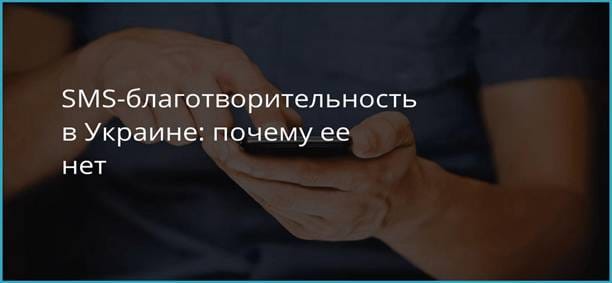 Legislation was recently amended under pressure from public activists who advocated for an adequate settlement of the high-profile SMS charity project. As a result, taxes and fees from SMS messages sent to charity were removed. More precisely - are registered at the legislative level. That is, to see and feel the legal force in action is not yet possible. There are simply no levers to implement this venture today.
Legislation was recently amended under pressure from public activists who advocated for an adequate settlement of the high-profile SMS charity project. As a result, taxes and fees from SMS messages sent to charity were removed. More precisely - are registered at the legislative level. That is, to see and feel the legal force in action is not yet possible. There are simply no levers to implement this venture today.
Formally, Ukrainian mobile operators have expressed a desire to implement a specific SMS campaign. But in fact and technically it is impossible to launch without a special transparent platform-system that will track payments and keep records, providing data to all non-profit organizations. The development of such a project requires significant investment, and the queues of those wishing to invest in this idea on the horizon is not yet visible.
And to revise Article 170 of the Tax Code of Ukraine, which states that only assistance provided by residents of Ukraine is not taxed, officials are in no hurry. So it turns out that on paper there is a law, but in reality there is not.
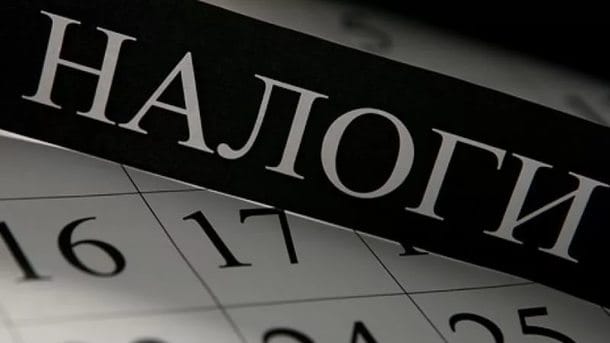 And yet there is a ray of light in the current situation - existing mobile operators agree to administer SMS-charity of proven and reliable charitable foundations such as Ufond , for example. And it’s easy to do - send an SMS with the word GOOD (DOBRO) to the short number ####. The cost of the message is 9 hryvnias including VAT.
And yet there is a ray of light in the current situation - existing mobile operators agree to administer SMS-charity of proven and reliable charitable foundations such as Ufond , for example. And it’s easy to do - send an SMS with the word GOOD (DOBRO) to the short number ####. The cost of the message is 9 hryvnias including VAT.
 And finally - as they say - ignorance of the law does not absolve from responsibility. No matter how impeccable and dualistic this law may be. Therefore, Ukrainian society has to rely only on its own strength, study the Laws on its own and demand an audience with the authorities in order to get an answer to the question: The modern Ukrainian legal framework is terra is incognita an unknown field with dark jurisprudence, or is tabula rasa a blank slate of the rule of law ?
And finally - as they say - ignorance of the law does not absolve from responsibility. No matter how impeccable and dualistic this law may be. Therefore, Ukrainian society has to rely only on its own strength, study the Laws on its own and demand an audience with the authorities in order to get an answer to the question: The modern Ukrainian legal framework is terra is incognita an unknown field with dark jurisprudence, or is tabula rasa a blank slate of the rule of law ?
Author Ekaterina Stebelskaya
 Yes, and "noted" - this is probably not the most appropriate word in today’s realities. Rather, they sarcastically summed up acts of blatant lawlessness in power and civil impotence in an attempt to reach the armored doors of the four-story marble offices of the people’s servants, whom they themselves had chosen. Although, here we still need to see who is closer to the art of making mistakes - we, the people who choose the wrong ones, or the political (non) elite, which responds to knowledge with ignorance, truth - untruth, trust - betrayal.
Yes, and "noted" - this is probably not the most appropriate word in today’s realities. Rather, they sarcastically summed up acts of blatant lawlessness in power and civil impotence in an attempt to reach the armored doors of the four-story marble offices of the people’s servants, whom they themselves had chosen. Although, here we still need to see who is closer to the art of making mistakes - we, the people who choose the wrong ones, or the political (non) elite, which responds to knowledge with ignorance, truth - untruth, trust - betrayal.Here we recall a textbook example from the story of Louis XIV and experts who attribute the phrase "The state is me!" to this French monarch. In fact, before he died, he told his son: “I am leaving, but the state will always live! We must put the well-being of our subjects far above our own good. ” Louis XIV did not declare his monopoly on power - he spoke of the fullness of his royal duties. This is the case with our Laws and legislators - it seems that they exist, they seem to know about them, but in practice - confusion not only in the verbal wording of the Law, but also in human destinies.
Now, unfortunately, at the national level it is customary to remember the Law and the Law on holidays or at a convenient (favorable) occasion. On public and civil - much more often.
 "You will answer according to the Law!", "Yes, I will drag you to court!", "You will tell my lawyer!", "I have every right!", "You have no evidence!", - these phrases and many similar ones, already have long been part of the usual lexicon, and at the same time, in the everyday life of Ukrainian society. They can often be heard on the street, in the store, and in the queue at the clinic (or rather - the Center for Primary Health Care now), and in public transport, and, of course, directly in the institutions where the same laws are created, (un) fair courts are conducted and Ukrainian lawmaking is developed. And the adjective "Ukrainian" here is not because it belongs to the state of Ukraine, but because it has its own specific bureaucratic color, which distinguishes the Law and Law in a separate area of jurisprudence - Ukrainian lawmaking.
"You will answer according to the Law!", "Yes, I will drag you to court!", "You will tell my lawyer!", "I have every right!", "You have no evidence!", - these phrases and many similar ones, already have long been part of the usual lexicon, and at the same time, in the everyday life of Ukrainian society. They can often be heard on the street, in the store, and in the queue at the clinic (or rather - the Center for Primary Health Care now), and in public transport, and, of course, directly in the institutions where the same laws are created, (un) fair courts are conducted and Ukrainian lawmaking is developed. And the adjective "Ukrainian" here is not because it belongs to the state of Ukraine, but because it has its own specific bureaucratic color, which distinguishes the Law and Law in a separate area of jurisprudence - Ukrainian lawmaking. This is a brief introduction to the fact that if there is a Constitution in Ukraine, it does not mean that it works. The same can be said about the Law on Charity and some nuances of the system of taxation of charitable funds. What’s wrong with them?
 Charity was officially approved at the legislative level in 1997, when the incumbent President of Ukraine Leonid Kuchma signed the Law on Charity and Charitable Organizations on September 16. Leaving aside the complex legal terms, we can say about this Law only that it was written clumsily, very modestly and very conditionally. The interpretation of its main provisions was far from unambiguous and this created a lot of difficulties in the work of philanthropists and their organizations.
Charity was officially approved at the legislative level in 1997, when the incumbent President of Ukraine Leonid Kuchma signed the Law on Charity and Charitable Organizations on September 16. Leaving aside the complex legal terms, we can say about this Law only that it was written clumsily, very modestly and very conditionally. The interpretation of its main provisions was far from unambiguous and this created a lot of difficulties in the work of philanthropists and their organizations.It was decided to accept the imperfection and revise this Law only after 15 long years. Thus, the new Law of Ukraine "On Charitable Activities and Charitable Organizations" of July 5, 2012 was adopted. It came into force in 2013, but even now has not been able to develop a single mechanism for the direct implementation of this very charitable activity.
What are the pros and cons of the new law?
First, the state registration of charitable organizations has been simplified. Now it is possible to register such an organization not in 2 months, but in 3 working days. But things are not so smooth here due to the fact that the Ministry of Justice and state registrars can not decide which of them should register.
Second, the territorial status of charitable organizations was abolished. This allowed to reach the all-Ukrainian level, and regardless of the place of registration to choose the area of activity and respond more quickly, for example, to natural disasters.
Third, the concept of the direction of charitable activities and its spheres has been expanded. This allowed charitable activities in any industry to run smoothly.
Fourth, there are a number of simplifications: now you do not need to open two separate bank accounts for charity and administrative expenses; accounting has been simplified; obligatory creation of the estimate is canceled. But in addition to the pros at this point, there is a very important disadvantage - the misuse of the results of charitable organizations.
 As a result of accounting simplification at the legislative level, it is possible that a charity can freely and painlessly (and most importantly - legally) take a loan from a bank or company on the security of its collected charitable funds. And there is no guarantee that when the loan is repaid, the same bank or company will not require recovery from the same charity. In addition, charities will also be able to lend or lend to others. Which, too, agree, does not honor such a law.
As a result of accounting simplification at the legislative level, it is possible that a charity can freely and painlessly (and most importantly - legally) take a loan from a bank or company on the security of its collected charitable funds. And there is no guarantee that when the loan is repaid, the same bank or company will not require recovery from the same charity. In addition, charities will also be able to lend or lend to others. Which, too, agree, does not honor such a law.A positive feature of the new law is the distinction between "charitable foundation" and "public organization". This has significantly streamlined the activities of these types of entities and now charitable foundations do not need to perform the functions of public organizations.
And there are many such moments in the Law on who is who and who is obliged to do what. In addition, the main and significant shortcoming of the new version of the Law (despite some of its positive aspects) is the painful issue of taxation of collected charitable funds. Today, charitable foundations and charitable organizations in Ukraine are no exception for the Ministry of Finance and, like everyone else, are burdened with the heavy burden of taxes that have to be paid to the leaky state treasury, not to treat and save children’s lives who need this money right now. .
It is to be hoped that this version is not final and that future amendments to this Act will be legal, competent and, importantly, effective.
Also, no less important aspect in the topic of the Law is the topic of taxation of charitable funds. According to the letter of the Law, this duty is assigned to the Tax Code of Ukraine and the same Law "On Charitable Activities and Charitable Organizations".
 Legislation was recently amended under pressure from public activists who advocated for an adequate settlement of the high-profile SMS charity project. As a result, taxes and fees from SMS messages sent to charity were removed. More precisely - are registered at the legislative level. That is, to see and feel the legal force in action is not yet possible. There are simply no levers to implement this venture today.
Legislation was recently amended under pressure from public activists who advocated for an adequate settlement of the high-profile SMS charity project. As a result, taxes and fees from SMS messages sent to charity were removed. More precisely - are registered at the legislative level. That is, to see and feel the legal force in action is not yet possible. There are simply no levers to implement this venture today.Formally, Ukrainian mobile operators have expressed a desire to implement a specific SMS campaign. But in fact and technically it is impossible to launch without a special transparent platform-system that will track payments and keep records, providing data to all non-profit organizations. The development of such a project requires significant investment, and the queues of those wishing to invest in this idea on the horizon is not yet visible.
And to revise Article 170 of the Tax Code of Ukraine, which states that only assistance provided by residents of Ukraine is not taxed, officials are in no hurry. So it turns out that on paper there is a law, but in reality there is not.
 And yet there is a ray of light in the current situation - existing mobile operators agree to administer SMS-charity of proven and reliable charitable foundations such as Ufond , for example. And it’s easy to do - send an SMS with the word GOOD (DOBRO) to the short number ####. The cost of the message is 9 hryvnias including VAT.
And yet there is a ray of light in the current situation - existing mobile operators agree to administer SMS-charity of proven and reliable charitable foundations such as Ufond , for example. And it’s easy to do - send an SMS with the word GOOD (DOBRO) to the short number ####. The cost of the message is 9 hryvnias including VAT.  And finally - as they say - ignorance of the law does not absolve from responsibility. No matter how impeccable and dualistic this law may be. Therefore, Ukrainian society has to rely only on its own strength, study the Laws on its own and demand an audience with the authorities in order to get an answer to the question: The modern Ukrainian legal framework is terra is incognita an unknown field with dark jurisprudence, or is tabula rasa a blank slate of the rule of law ?
And finally - as they say - ignorance of the law does not absolve from responsibility. No matter how impeccable and dualistic this law may be. Therefore, Ukrainian society has to rely only on its own strength, study the Laws on its own and demand an audience with the authorities in order to get an answer to the question: The modern Ukrainian legal framework is terra is incognita an unknown field with dark jurisprudence, or is tabula rasa a blank slate of the rule of law ? Author Ekaterina Stebelskaya